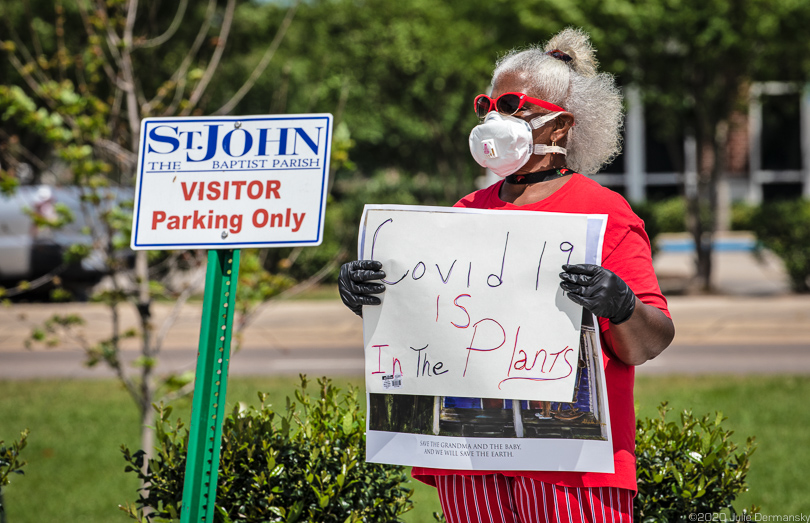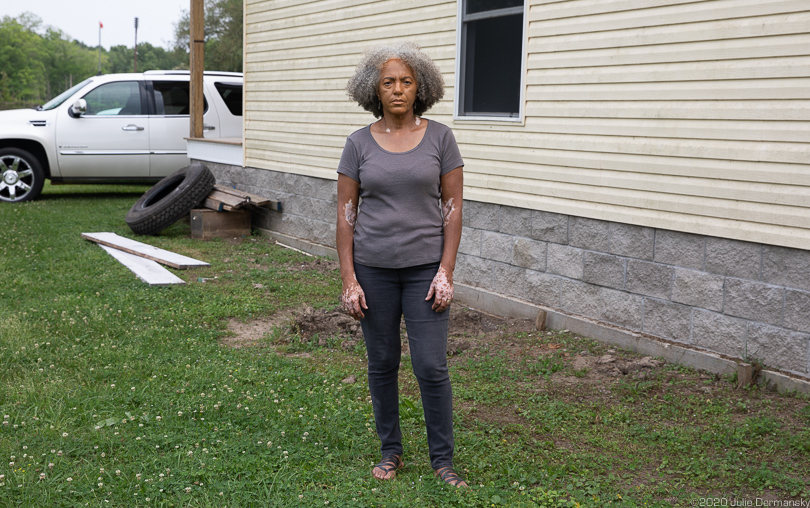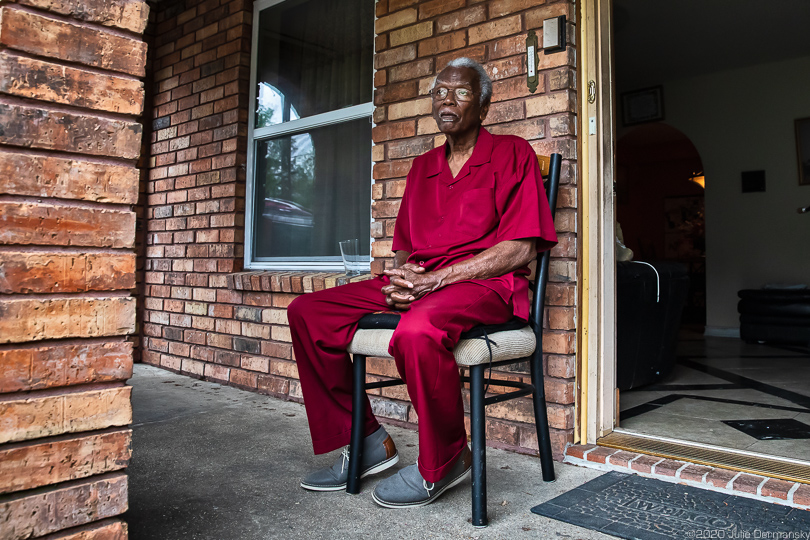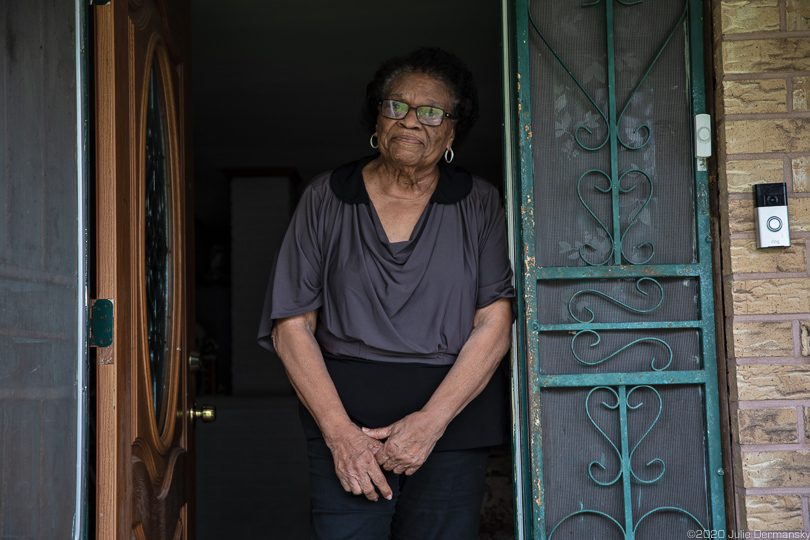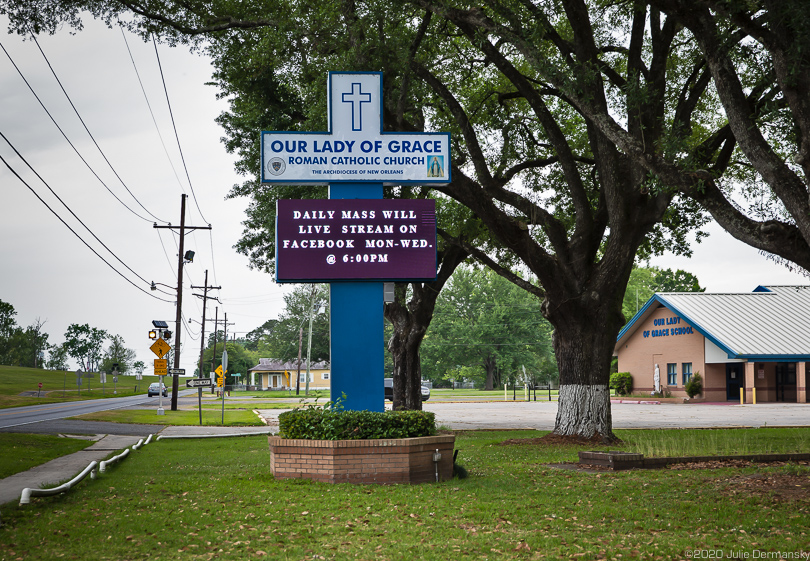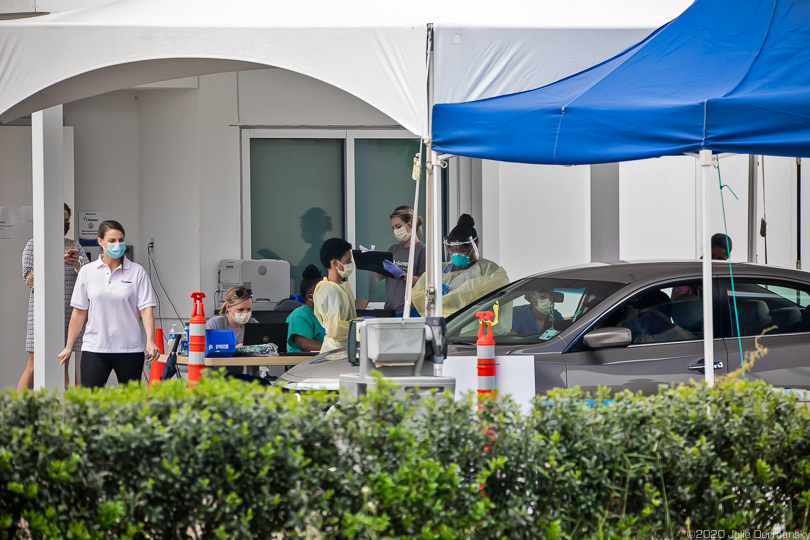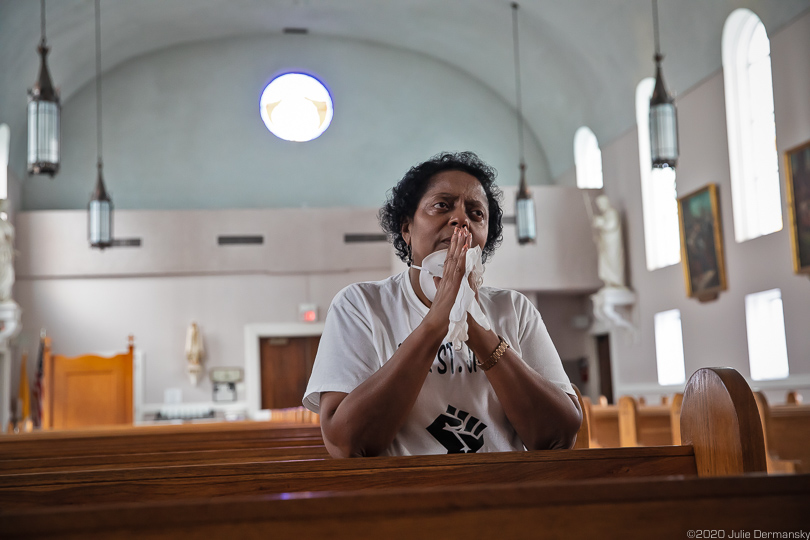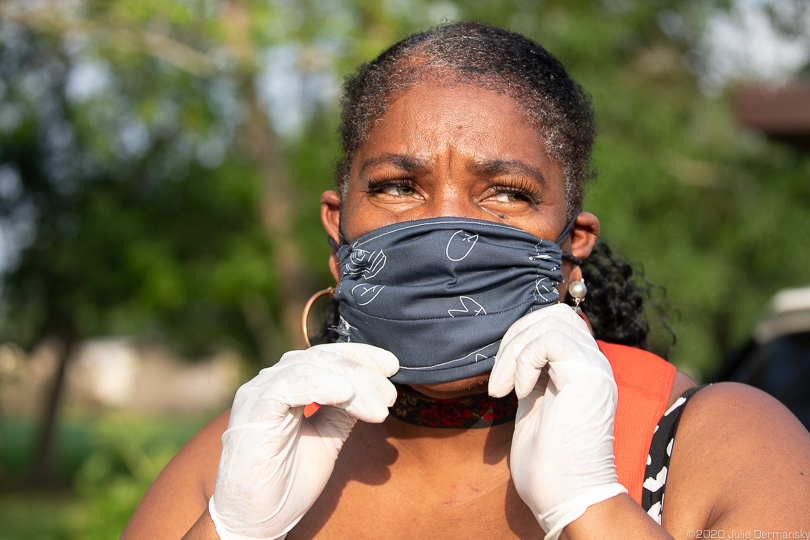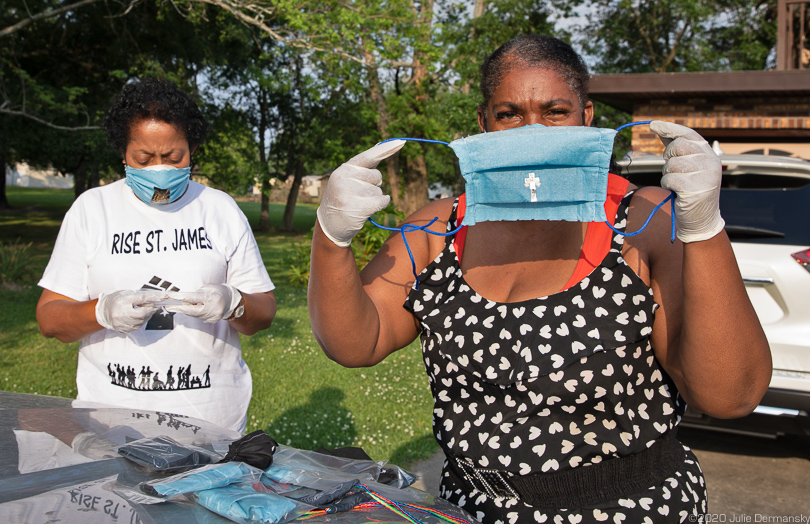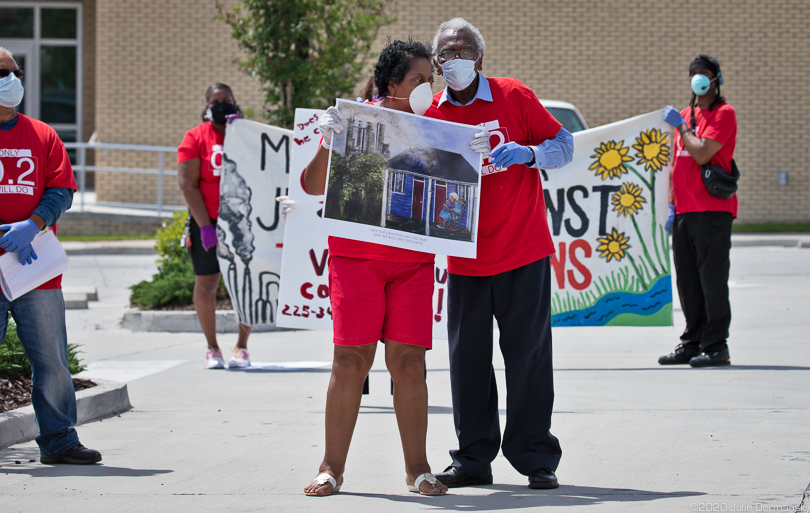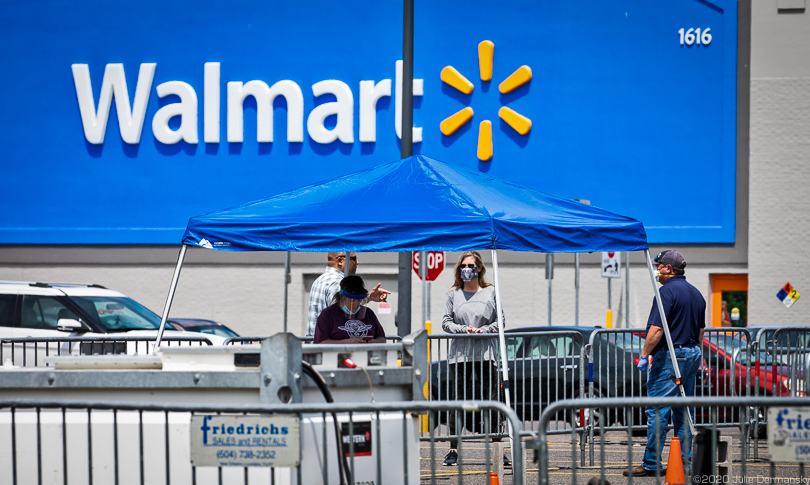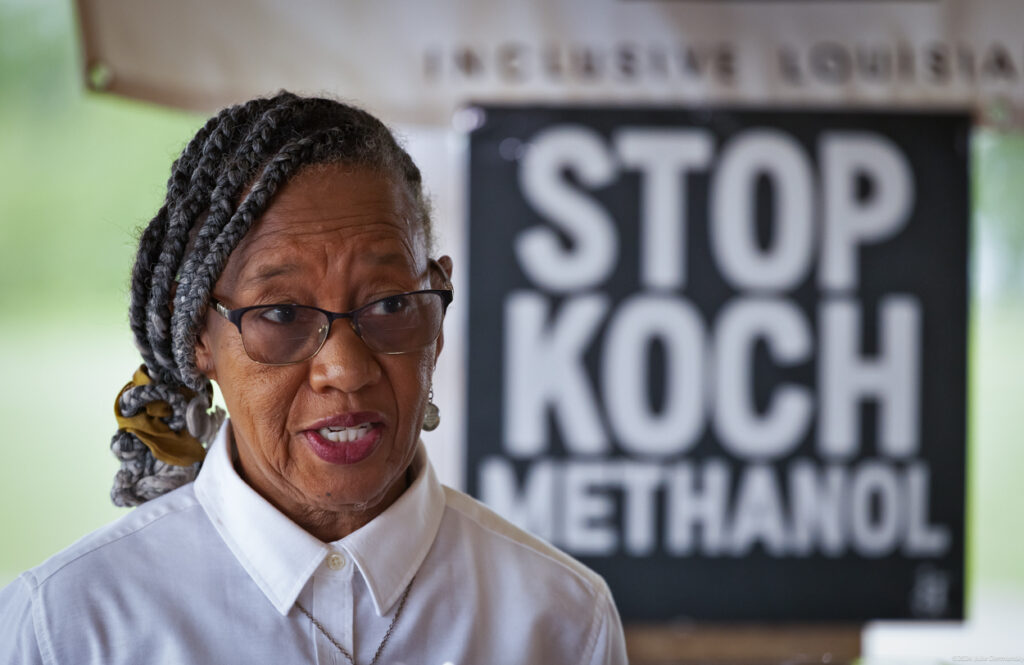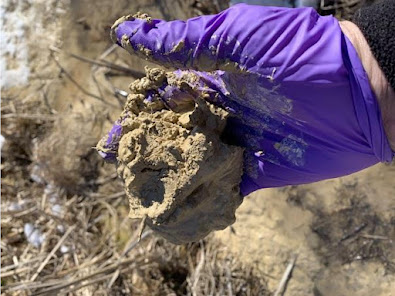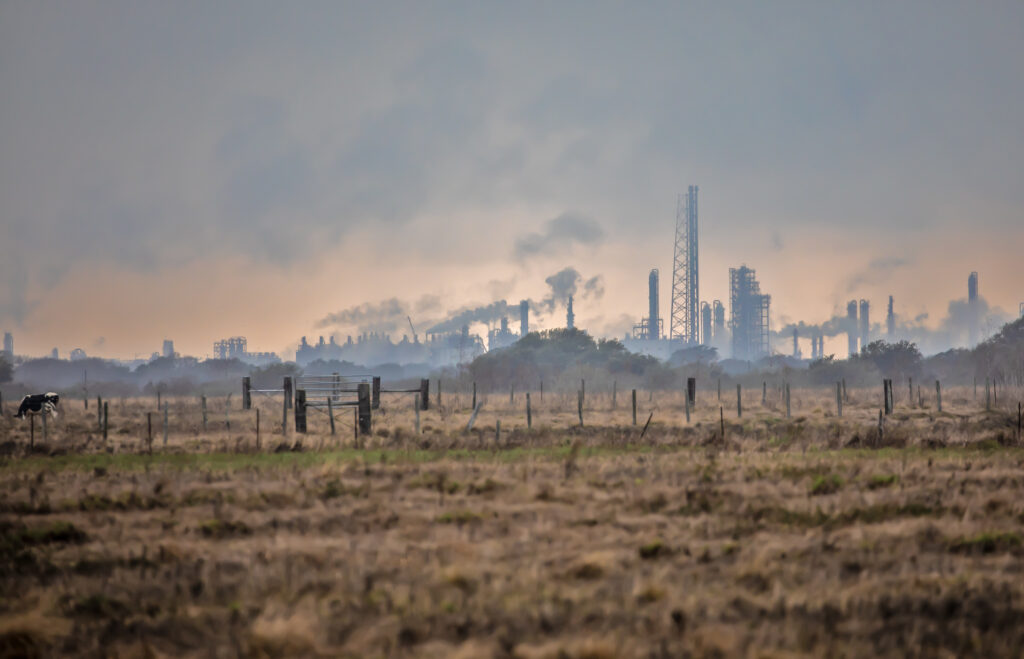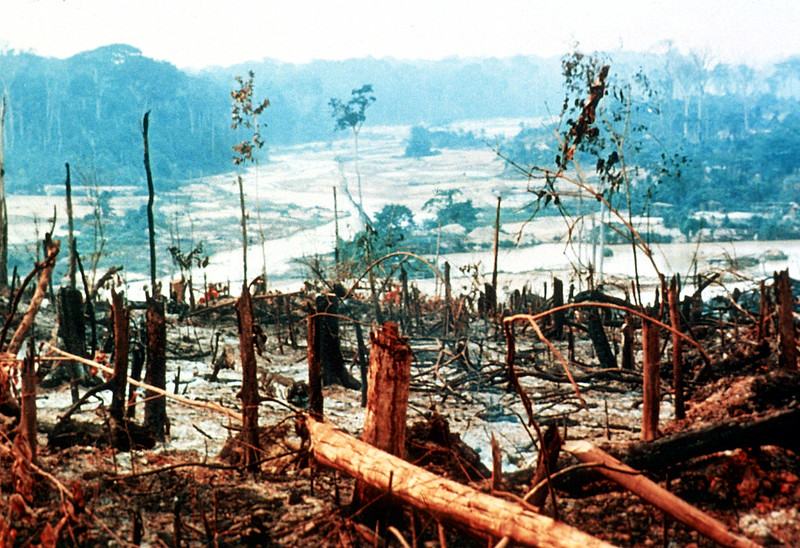Confirming fears, cases of COVID-19 have been spreading at an alarming rate in Louisiana’s Cancer Alley, an 80 mile stretch along the Mississippi River between New Orleans and Baton Rouge that is lined with refineries and petrochemical plants.
From a safe distance, I met with activists in St. James Parish and St. John the Baptist Parish, both located on the river’s banks and where predominantly black communities have been fighting for clean air for years. They shared concerns that African Americans are dying of COVID-19 at a disproportionate rate and that toxic air pollution they’re still exposed to is increasing their vulnerability to the virus.
These two small communities, with roughly 60,000 residents combined, so far have seen more than 750 confirmed COVID-19 cases and 51 deaths, according to the Louisiana Department of Health.
Governor John Bel Edwards pointed out the racial disparity of COIVD-19 victims during a press conference on April 5. He stated that of the 512 people to die from the virus in Louisiana by that date, African Americans made up 70 percent of all deaths, despite being only one-third of the population.
The Concerned Citizens of St. John the Baptist Parish, a community group, worries that the industrial sites around their homes might end up releasing even higher levels of air pollution since the U.S. Environmental Protection Agency (EPA) announced that it was relaxing some of its pollution reporting and monitoring rules for plants due to the pandemic.
The group has been particularly concerned about the nearby Denka plant, which emits numerous toxic chemicals including chloroprene, a likely human carcinogen, that’s used to produce the synthetic rubber Neoprene.
Lydia Gerard: “There are lots of peoples I know that are being impacted. It is too many for this small area. It isn’t a coincidence we have a high death rate here.” She wants Gov. Edwards to force the petrochemical plants around them to bring down emissions, especially, the Denka plant.
Robert Taylor, the founder of the Concerned Citizens of St John the Baptist Parish, spoke to me while sitting in front of his house in Reserve, Louisiana: “The weakest people are going to suffer the most and it’s evident that we are the weakest people in the nation and maybe in the world because of our exposure to the onslaught of these chemicals.”
Mary Hampton inside her front door on her 81st birthday, after attending a funeral: “The situation is scary because people are dying all around. Our immune systems are compromised due to all the pollution here. Everybody I know has respiratory illnesses. We are more susceptible to getting this. Between all of the chemicals and the virus, we are doomed. I am sitting here waiting to die.”
Jim Harris, a spokesperson for Denka, said by email that those worries were unmerited. That sentiment was echoed by one of the state regulatory agencies.
“Permit limits have not been relaxed because of the epidemic,” Gregory Langley, a spokesperson for the Louisiana Department of Environmental Quality (LDEQ), wrote by email. He added that the agency will investigate complaints and report any unauthorized emissions but that “routine inspections may be rescheduled. That is decided on a case-by-case basis.”
Wilma Subra, an environmental scientist and technical advisor with the Louisiana Environmental Action Network (LEAN), understands the communities’ concerns. She pointed out that following Hurricanes Katrina and Rita, she saw all kinds of unauthorized releases of pollution from numerous companies. She said she won’t be surprised if the pandemic leads to more unauthorized releases that companies might not be fined for if they are able to tie them to this latest disaster.
Church in Reserve, Louisiana, with an LED message directing people to its Facebook livestream.
COVID-19 testing site in LaPlace, in St. John the Baptist Parish.
Across the river in St. James Parish, members of RISE St. James, a group formed to stop new industrial development in the area, also voiced alarm about the growing spread of the virus in their community. They have been fighting to stop the plastics manufacturing company Formosa from building its proposed $9.4 billion petrochemical complex that would likely more than double the toxins in their already polluted air.
According to a report by ProPublica, the area closest to the site of Formosa’s proposed complex already contains more cancer-causing chemicals in emissions than 99.6% of industrialized areas nationwide.
On March 23, the day Louisiana’s stay-at-home order was set to begin at 5:00 pm, Stephanie Cooper, vice president of RISE St. James, found herself stuck in traffic while trying to buy essential supplies in her limited amount of time to do so. She was outraged to discover that the traffic was caused by construction at the site of Formosa’s plant. Construction workers were blocking the road as they put up utility poles where the complex is slated to be built.
Sharon Lavigne, the founder of RISE St. James, in St. James Catholic Church, told me: “Black people are being polluted the most in the 4th and 5th District in St James Parish, so of course we are hit the most by the pandemic. We are already hit by the pollution in the air. The pandemic adds to what we are already going through.”
Sharon Lavigne, RISE St. James’s founder, went to confront the workers and live-streamed the situation. The next day work at the site stopped. Courthouse News Service reported that Entergy, the utility company installing the poles, halted work at Formosa’s request, despite utility work being designated as critical infrastructure under federal guidelines and the governor’s stay-at-home order. The work had also coincided with high water levels on the Mississippi River, which can make construction near levees illegal.
I met with members of both community groups on April 8. All were concerned about the impact the pandemic was having on their communities. While the national conversation is now focused on the racial disparity in virus infections and deaths, they are upset that it isn’t centered on the contribution of pollution. Air pollution can be a major factor in underlying health issues in their communities and at least one study has tied one type of pollutant to a higher mortality rate for COVID-19.
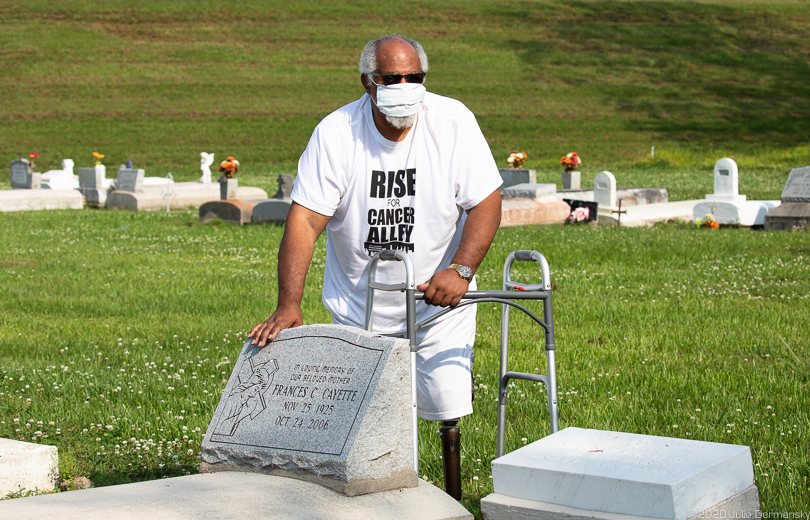
Stephanie Cooper, vice president of RISE St. James, says conversations about racial disparity in the coronavirus’s impact often fail to mention the role pollution plays in compromising the health of many African-American communities that are near refineries and chemical plants.
“I yelled at the TV while watching ‘Good Morning America,” Stephanie Cooper told me. “They mentioned obesity, bad diet, a lack of money leading to a lack of health care, but didn’t mention pollution. How can they leave that out?” Cooper said. “It feels like another case of ‘blame the victims.’” She has no doubt that the toxins from the nearby industrial plants in Cancer Alley have led to many local residents’ illnesses. “Leaving pollution out of the conversation is just wrong.”
She told me that just that morning she had read a report released from Harvard that connects long-term exposure to fine particulate air pollution (PM2.5) with COVID-19 mortality in the United States.
The Harvard T.H. Chan School of Public Health study, which has not yet undergone scientific peer review, concludes that “a small increase in long-term exposure to PM2.5 leads to a large increase in COVID-19 death rate, with the magnitude of increase 20 times that observed for PM2.5 and all-cause mortality. The study results underscore the importance of continuing to enforce existing air pollution regulations to protect human health both during and after the COVID-19 crisis.”
A couple days before that, Cooper read a report by Vice that said, “Researchers at UTHealth in March published a study using census data and the 2018 Health of Houston Survey to identify neighborhoods in the city where residents are most at risk of hospitalization from the virus — neighborhoods with high percentages of people over 60 and with chronic illnesses. All of the highest risk neighborhoods are located on the east side of the city, which is home to a disproportionate number of petrochemical refineries and industrial transportation hubs.”
Subra agrees with Cooper on these points. She said that data from the Louisiana health department shows many of those dying from COVID-19 have health conditions, including respiratory illnesses and congenital heart failure that are associated with long-term chemical exposure.
And she pointed out that many in St. John the Baptist who live near the Denka plant have some type of existing respiratory issue. “They’re already very vulnerable,” Subra said. “Add the long-term exposure of toxic chemicals to the virus, which has a huge impact on the lungs, then they are much more apt to get it and then to have very detrimental effects.”
Stephanie Cooper, right, and Sharon Lavigne, left, with masks Cooper made. Cooper shows off a mask with a cross on it. She made them for doctors and nurses to wear so patients can see the cross when they are being cared for.
I asked Denka’s spokesperson if the plant takes any responsibility for adding to the risk factor of the residents who live nearby and have had chronic exposure to chloroprene and other chemicals.
Harris replied by email that “To allege that Denka has any responsibility for adding to the risk factor of the residents that live near the plant because of this study is patently false.” And he dismissed the Harvard study’s relevance.
“Simply, PM2.5 pollution is a type of particulate matter — it has nothing to do with chloroprene and is not specific to industrial activity — in fact it includes particles in car exhaust, wood and cigarette smoke, and naturally-occurring dust. More than that, there are dozens of other industrial sources of PM2.5 in the area, and to single just one source out as the cause of all this misery is not only incorrect, it’s irresponsible and slanderous.”
Subra found Harris’s response laughable. “Impacts on the community from pollution are cumulative. They aren’t about one thing,” Subra said.
Harris also stated, “Further, all Louisiana parishes are considered to be in attainment of federal PM2.5 standards and there is no reason to suggest St. John has any higher rate of PM2.5 than other areas. Elevated PM2.5 levels are typically found in urban areas like Los Angeles — those [are] likely the areas the study is referring to.”
Subra explained that while the petrochemical plants in St. John the Baptist and St. James are in compliance with the particulate matter standard, that doesn’t negate that fact that those plants, including Denka, are still emitting particulate matter that can contribute to the air quality issues. “Particulate 2.5 matter goes deep into the lungs. That’s why it’s an issue for those at risk to the coronavirus.”
Robert Taylor with Sharon Lavigne during a protest on April 11, 2020.
On April 11, members of the Concerned Citizens of St. John, RISE St. James, and their supporters held a protest in front of the St. John the Baptist Government Complex in LaPlace. About two dozen people gathered and called for Gov. Edwards to shut down the petrochemical plants in the region. They argued that not only are the emissions from the numerous plants making them more vulnerable to the coronavirus but that the petrochemical plants do not provide an essential service.
COVID-19 testing site in the parking lot of a Walmart Supercenter in LaPlace, in St. John the Baptist Parish.
While the protest took place, across the street in the parking lot of a Walmart Supercenter, a makeshift COVID-19 testing center was being set up, a sobering reminder of the risk the activists took to be sure their voices are heard.
Main image: Protester at the St. John the Baptist Government Complex on April 11, 2020. Credit: All photos by Julie Dermansky for DeSmog
Subscribe to our newsletter
Stay up to date with DeSmog news and alerts


